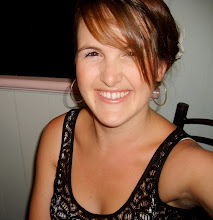The main advantage of blogging for me is the fact that you can use the space as a gathering place for all your information, useful websites, videos, vokis, photographs and other people's related blogs. It is all at your fingertips and you can constantly update and add information. The organisational side of blogging was fantastic! One drawback of blogging is that it is restricted to your own postings and resource collections. Other people cannot embed links or videos and therefore it draws away from the collaborative nature of many web2.0 tools and does not allow for that idea of a collective intelligence and a building of knowledge from a shared experience.
It was useful to reflect regularly on the course content, because it forced you to re-evaluate your initial thoughts and listen to other people's opinions, especially those who had not been able to talk in class. It was also interesting seeing other people's postings and videos, though it sometimes was nice to look and not have to comment, as this was a bit of a laborious process. Feedback on my own blog was useful - the lecturers comments were always insightful and encouraged further thinking. Classmates also offered interesting opinions and it was fun to see what other people thought on a particular issue. So, I guess it was nice for others to hear our opinions (or at least I hope so!)
! If I were starting a blog now (with my new knowledge!), I would most certainly be more thoughtful in my postings, linking my ideas and opinions to research and existing theories. A lot of my postings feel very casual and I feel these could be developed so that others would find my blog more interesting to engage in. I would also like to explore podcasting and vodcasting more and perhaps experiment with a tag cloud to draw all my resources together in the blog. All in all, this was a great experience and I learnt a lot from it!
All in all
13 years ago


